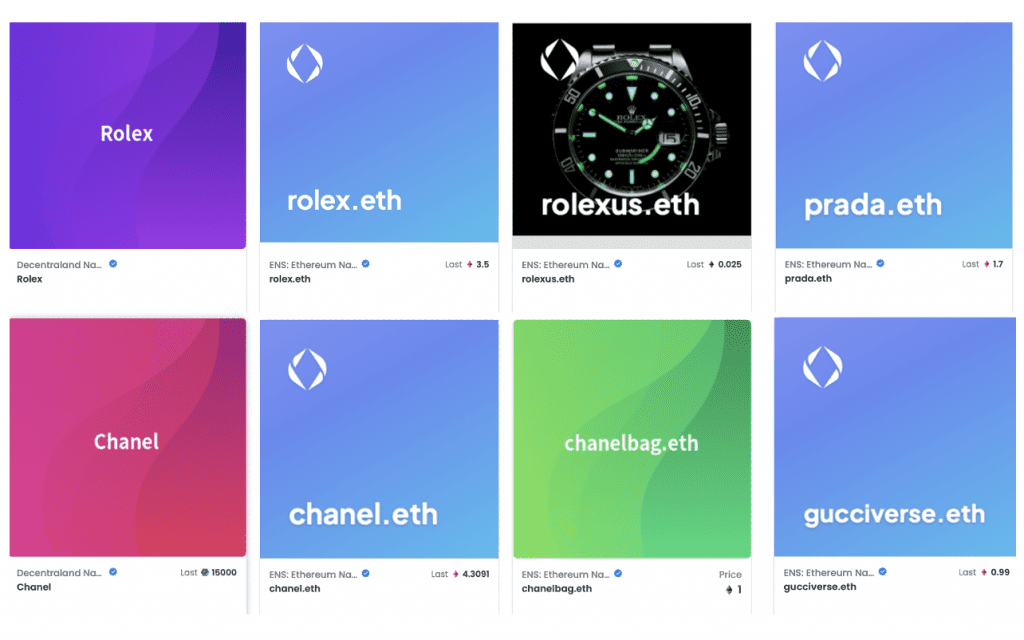Among the digital items and crypto collectibles that users can bid for and/or buy outright on non-fungible token (“NFT”) marketplaces like Opensea and Rarible are a sweeping array of crypto domain names. If you search for “Chanel” or “Hermès” on OpenSea, for instance, you will find NFTs tied to domains bearing the brands’ famous names up for offer. Chanel.eth currently boasts a price tag of 300 ETH ($924,794), while hermes.eth can be bought for 250 ETH ($788,435.00). The same goes for domains bearing the trademarks of Gucci, Prada, Dior, Balenciaga, Rolex, and other similarly situated brands, along with companies ranging from sportswear titan Nike to Italian automaker Ferrari.
Ethereum Name Service (“ENS”) domains (i.e., those that end in .eth) represent unique addresses on the Ethereum blockchain, which can be used to easily receive any type of cryptocurrency and/or token, including NFTs, to a crypto wallet. These ENS domains and others decentralized domains do not function entirely differently than their .com counterparts in that, like the traditional DNS system, they act as human-readable names for less straightforward addresses.
There are, however, some distinctions between DNS and crypto domains – from where the addresses point (typically to crypto wallets for crypto domains, but also websites that reside on a decentralized internet) to how governance is handled. Unlike DNS domains, for instance, blockchain-based web domains are not governed by the Internet Corporation for Assigned Names and Numbers (“ICANN”) and thus, are not subject to its procedures, such as the Uniform Domain-Name Dispute-Resolution Policy and the Uniform Rapid Suspension System.
This is a short excerpt from an article that was published exclusively for TFL Enterprise subscribers. Inquire today about how to sign up for an Enterprise subscription and gain access to all of our exclusive content.











